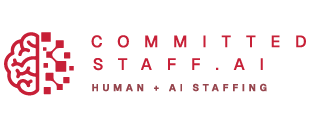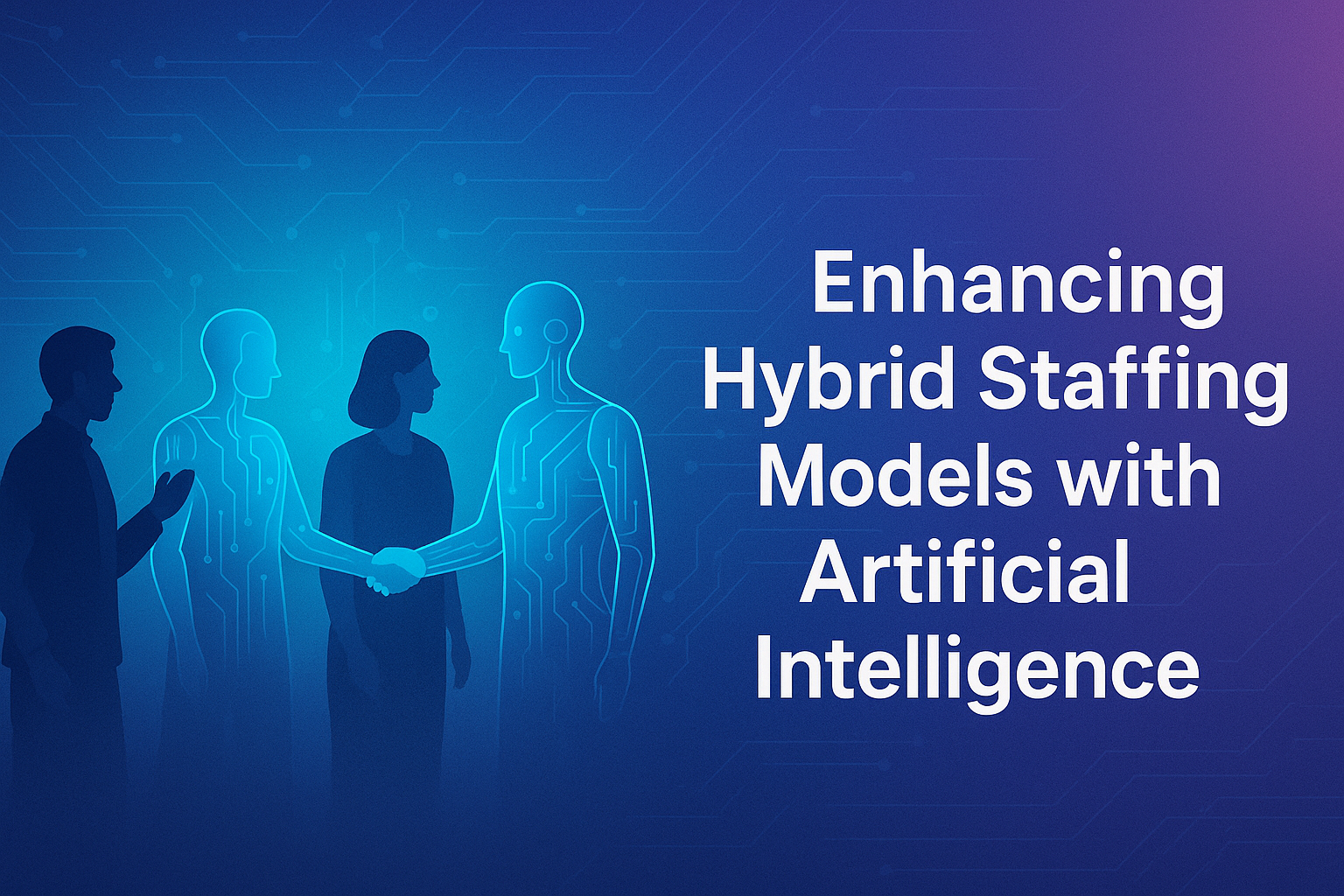In today’s rapidly evolving business landscape, organizations are seeking innovative ways to scale operations, optimize workforce management, and maintain competitive advantage. Hybrid staffing models — the strategic blend of human talent and intelligent systems — have emerged as a powerful approach to future-proof the workforce. When combined with AI agents such as intelligent assistants, automated decision systems, and digital copilots, these hybrid teams unlock unprecedented efficiencies and agility.
In this article, we’ll explore how AI agents are enhancing hybrid staffing models, enabling businesses to optimize productivity, improve decision-making, and foster a more dynamic, scalable workforce.
What Are AI Agents and How Do They Function?
AI agents refer to software entities powered by artificial intelligence designed to autonomously perform tasks, support decision-making, and interact intuitively with human colleagues. Examples include:
– Intelligent assistants: ChatGPT, Google Assistant, and Microsoft Copilot support employees by answering queries, generating content, and automating routine tasks.
– Robotic Process Automation (RPA) Systems: Tools like UiPath and Automation Anywhere automate repetitive workflows such as data entry, invoicing, or customer onboarding.
– Automated Decision Systems: AI models analyze large datasets to recommend business strategies, detect fraud, or optimize scheduling.
These AI agents work in tandem with human employees, augmenting their capabilities rather than replacing them. The recent advances in natural language processing, machine learning, and integration platforms have made AI agents more accessible and effective in everyday business functions.
Understanding Hybrid Staffing Models in Modern Enterprises
Hybrid staffing models combine the strengths of human talent with AI-powered systems to build highly adaptable teams. Businesses no longer rely solely on traditional full-time employees or outsourced workforce solutions. Instead, they strategically integrate:
– Human specialists providing creativity, empathy, and complex problem-solving.
– AI agents handling data-driven tasks, automation, and real-time insights for rapid decision support.
This model is especially relevant in industries like IT, customer service, finance, and HR, where scalability and flexibility under changing market conditions are imperative. Hybrid staffing allows companies to optimize resources by assigning routine, low-value tasks to AI and reserving high-impact work for humans.
Key Benefits of Blending AI Agents with Human Talent
1. Improved Productivity:
AI agents automate repetitive tasks, freeing human employees to focus on strategic initiatives and innovation. For example, Microsoft Copilot integrates with Office 365 to automate routine document creation and data analysis, speeding up workflows.
2. Cost Optimization:
By shifting routine workload to AI, companies can reduce overhead costs related to manual labor, errors, and time delays. AI solutions operationalize at scale without proportionate increases in staffing budgets.
3. Enhanced Data-Driven Decisions:
AI agents process vast amounts of structured and unstructured data to generate actionable insights. This supports hybrid teams in making informed, timely decisions that align with business goals.
4. Scalability and Flexibility:
Hybrid staffing models empowered by AI can rapidly adapt resource allocation based on demand fluctuations, seasonal needs, or project phases.
5. Improved Employee Experience:
By eliminating mundane tasks, AI empowers employees to engage in more meaningful work, leading to higher job satisfaction and retention.
Navigating Risks and Challenges
While the integration of AI agents within hybrid staffing models presents exciting opportunities, enterprises must proactively address potential challenges:
– Employee Resistance:
Fear of job displacement and mistrust of AI can hamper adoption. _Mitigation:_ Transparent communication about AI’s role as a human collaborator and upskilling programs easing transition.
– Training and Change Management:
Employees require training to collaborate effectively with AI agents. _Mitigation:_ Invest in ongoing education and user-friendly AI interfaces.
– Ethical and Privacy Concerns:
AI systems must comply with data privacy laws and ethical guidelines. _Mitigation:_ Implement robust governance and audit mechanisms ensuring transparency and accountability.
– Quality and Bias in AI Outputs:
AI decisions are only as good as data quality and model design. _Mitigation:_ Continuously monitor AI performance and apply human oversight for critical tasks.
Practical Use Case: Smart Hybrid Customer Support Team
Imagine a global enterprise implementing a hybrid customer support division combining human agents with AI copilots:
– AI agents handle initial customer inquiries through intelligent chatbots, providing instant responses and routing complex issues.
– Human agents focus on escalated cases requiring empathy, negotiation, and creative problem-solving.
– AI continuously analyzes support ticket data to identify trends and recommend process improvements.
– This hybrid model reduces average resolution times by 40% while improving customer satisfaction scores and reducing staffing costs by 30%.
Such implementations demonstrate how AI-enhanced hybrid staffing models can revolutionize traditional team structures for optimized performance.
Embracing the Future of Work: How to Get Started
The intersection of AI agents and hybrid staffing is transforming workforce paradigms. To harness this potential:
– Assess your current staffing models to identify repetitive tasks that AI can automate.
– Engage cross-functional teams to design hybrid workflows that leverage human and AI strengths.
– Invest in scalable AI agent platforms — from RPA to advanced copilots.
– Prioritize employee training and change management programs.
– Monitor outcomes and iteratively optimize your hybrid staffing strategy.
Learn how to integrate AI agents into your team structure to build a future-ready workforce that drives growth, innovation, and operational excellence. Request a consultation to explore hybrid staffing solutions tailored for your business.
Conclusion
AI agents are not merely futuristic tools — they are enablers of a hybrid staffing revolution reshaping how enterprises work. By intelligently combining human skills with automation and data-driven insights, organizations gain a competitive edge through enhanced productivity, agility, and employee engagement. The future of work lies in this intelligent partnership between people and AI, and forward-thinking businesses have the opportunity to lead the way.
Seize this moment to innovate your workforce strategy and empower your teams for the challenges and opportunities ahead.



Recent Comments